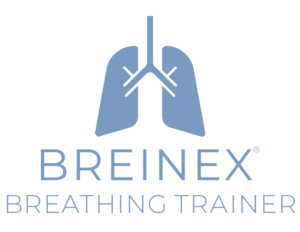Oxygen fuels our brains, regulates blood pressure, and aids digestion. Our whole existence depends on oxygen. It requires oxygen for our hearts to pump blood and keep us functional. But are we receiving enough of it?
Surprisingly, 80% of people can’t breathe properly. The answer to this is obvious—lack of awareness regarding respiratory health. We are unaware of how much oxygen we require for a healthy life, how much we inhale, and the consequences of not meeting body oxygen requirements.
We seldom give our respiration any thought since it happens unconsciously, which is why it is necessary to understand the rationales behind the importance of breathing and respiratory health.
Why is oxygen intake important?
All our physiological factors are impacted by the quantity and quality of oxygen we consume. In addition to being essential for our survival, oxygen serves various purposes.
- Fighting Diseases
Oxygen builds immunity against various diseases and safeguards your body against viruses. While a high oxygen level aids in building immunity, low oxygen levels give rise to serious consequences.
- Obtaining Energy
Food breaks into simple glucose (sugar) during cellular respiration, which provides energy for our body—and this breakdown is fueled by oxygen. In other words, we need adequate oxygen to break down food and convert it into the energy we require for everyday activities.
- Cognitive Functions
Our brain consumes 20% of the entire body’s oxygen. Brain activities like excessive cellular respiration, transporting messages via nerve signals, and performing all basic cognitive functions justify the high oxygen equity of the brain.
That’s not it—Lack of sufficient oxygen can cause brain cells to die.
Why do most people not take care of their lungs?
One in every seven middle-aged and older people has a breathing problem. Though we might not have direct respiratory illnesses, the quality and quantity of oxygen intake affect many of our body functions.
Since the signs are not immediately apparent, we only consider our lungs when we experience respiratory issues, making it too late to respond to the damage. Hence, especially with little to no awareness about respiratory health, it becomes vital to start taking basic measures to keep respiratory health intact.
How to Improve Your Respiratory Health
Strengthening your lungs benefits you in all aspects of life, and all you need are simple lifestyle changes to notice progressive growth.
- Include workouts in your routine
When you exercise, the heart pumps more blood into the body, consuming higher amounts of oxygen. Including exercises like weightlifting or running in your workout routine can increase the capacity to absorb and hold oxygen.
- Breathing exercises
Breathing exercises improve blood circulation and respiratory health. Breathe training for lungs is what dumbbells are to arms—it makes lungs stronger by making breathing momentarily difficult, just like dumbbells make arms stronger by making weightlifting hard for a short period. Removing stale air from the lungs helps the diaphragm expand and take in more oxygen.
- Small Habits Matter:
Avoid or reduce smoking. Eat healthy, exercise, and keep a healthy weight. Quitting smoking lowers carbon monoxide levels and restores normal lung function. Lack of exercise and excess fat can make breathing difficult and cause irregular breathing patterns.
With oxygen intake playing a massive role in our respiratory and overall health, shouldn’t we put more conscious efforts into preparing our lungs to consume more oxygen? We understand we all have a lot on our desks in today’s hustle culture, which makes taking an hour for our lungs nearly impossible.
BREINEX Plus is specifically designed to address this need. They help you strengthen your respiratory muscles by increasing breathing difficulty momentarily. It must take a long time, you think? No. You just need to train for 5 minutes daily.
Check the BREINEX products

